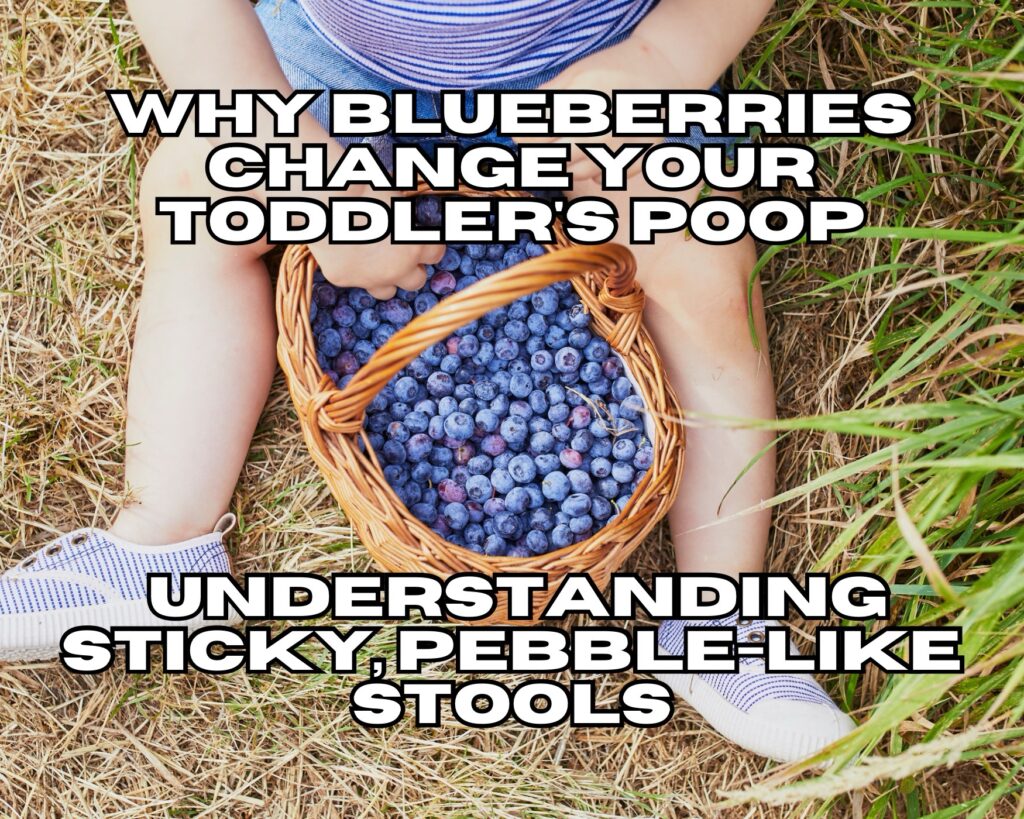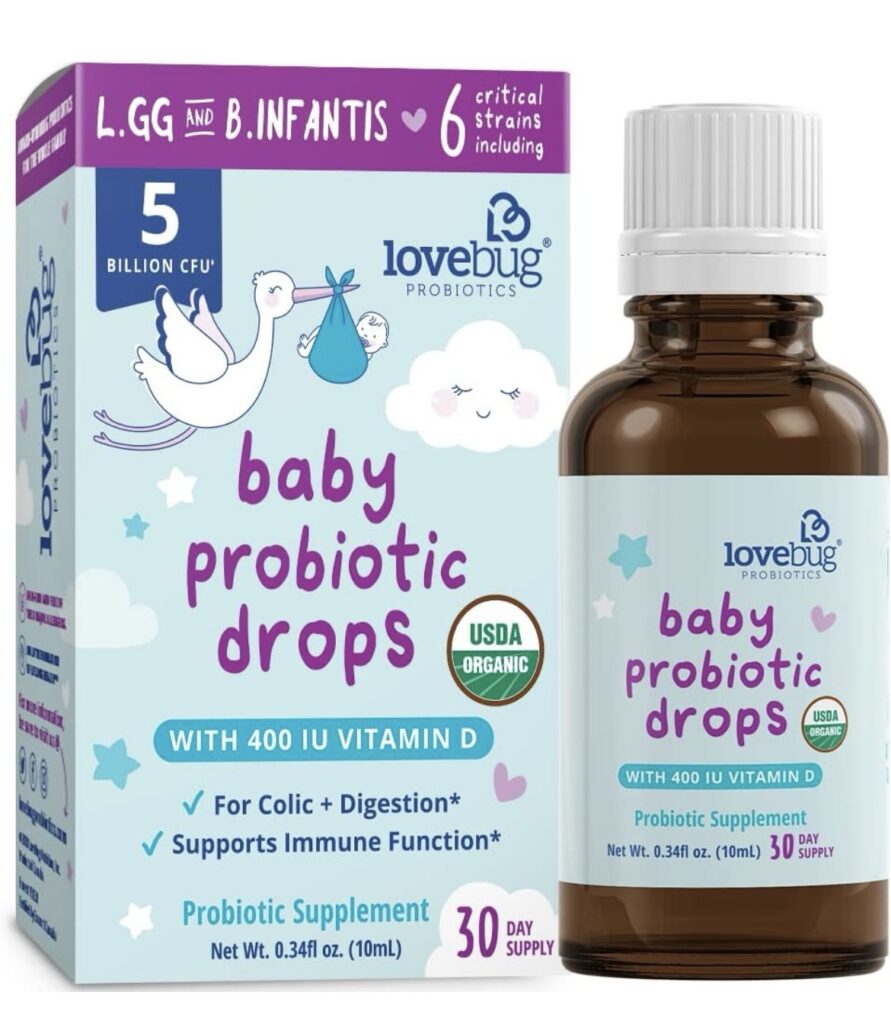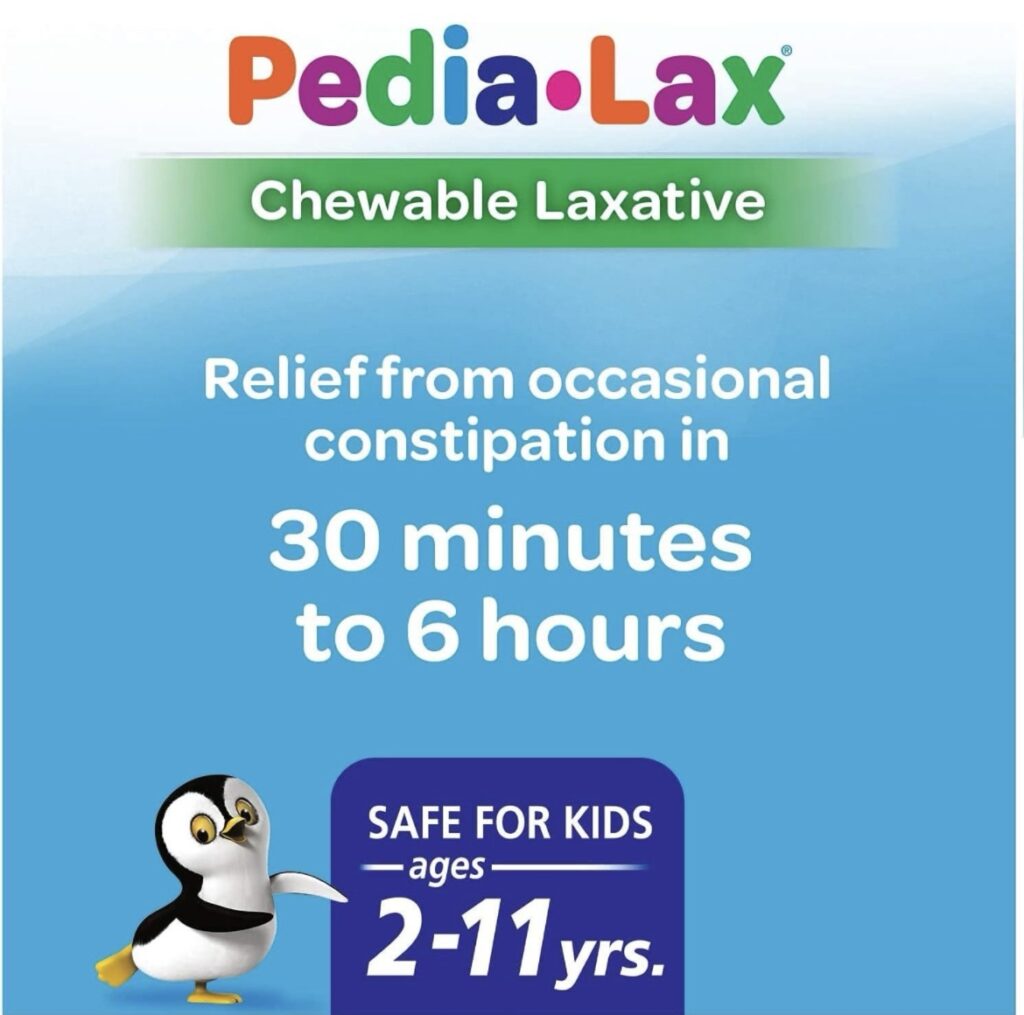As parents, we often find ourselves examining our toddler’s diapers with a mix of curiosity and concern, especially when we notice something out of the ordinary. One such observation is the appearance of sticky, pebble-like stools after our little ones consume blueberries. This change, while initially alarming, is actually a fascinating demonstration of how certain foods, particularly blueberries, impact our children’s digestive systems.
In this article titled “Why Blueberries Change Your Toddler’s Poop: Understanding Sticky, Pebble-like Stools,” we will explore the digestive quirks of toddlers, specifically focusing on the changes brought about by blueberries. We’ll delve into what makes these tiny fruits cause such noticeable alterations in stool texture and consistency, and also touch upon other foods that can have similar effects. Our goal is to provide a better understanding of these digestive changes, helping parents discern when they are a normal part of a toddler’s diet and when they might indicate something more significant.

Understanding Toddler Digestion
To grasp why blueberries affect your toddler’s stool, it’s important to understand the basics of a toddler’s digestive system. At this stage of development, a child’s digestive system is still maturing, and it responds differently to various foods compared to an adult’s.
The Maturing Digestive System
- Digestive Enzymes: Toddlers have developing levels of digestive enzymes, which can affect how they break down certain foods.
- Gut Flora: The balance of gut bacteria in toddlers is still establishing, influencing digestion and stool formation.
Normal Variations in Toddler Stool
- Stool Consistency and Color: A toddler’s stool can vary widely in consistency and color based on their diet. It’s normal to see changes as they try new foods.
- Response to Dietary Changes: Foods like blueberries can cause noticeable changes because of their specific nutritional content, but these changes are typically harmless.
Understanding these aspects of toddler digestion helps in recognizing that variations in stool, including those caused by blueberries, are often normal and part of a child’s dietary exploration.

What Can Help With Digestive Changes in Toddlers?
When facing digestive changes in toddlers, especially due to dietary causes like blueberry consumption, there are effective ways to support their digestive health and ease any discomfort.
Incorporating Probiotics
- Benefits of Probiotics: Probiotics can play a crucial role in balancing gut flora, aiding digestion, and alleviating issues like gas, constipation, or diarrhea.
- Probiotic Supplements for Toddlers: For young children, specially formulated probiotic supplements, such as Lovebug Award Winning USDA Organic Probiotic for Infants & Babies, can be beneficial. These supplements are designed to support a healthy digestive system in infants and toddlers, addressing issues like colic, reflux, and irregular bowel movements.
Dietary Adjustments
- Balanced Fruit Intake: While fruits like blueberries are nutritious, balancing them with other dietary elements can help regulate stool consistency.
- Hydration and Fiber: Adequate hydration and a diet rich in fiber can assist in maintaining regular bowel movements. Foods like whole grains, vegetables, and certain fruits can add the necessary fiber to a toddler’s diet.
Monitoring for Allergies and Sensitivities
- Allergy Consideration: Sometimes, changes in stool can indicate a food sensitivity or allergy. Monitoring your child for any other symptoms like rashes or behavioral changes is important.
- Consultation with a Pediatrician: If you’re considering probiotics or if there are ongoing concerns about your child’s digestion, consulting with a pediatrician is advisable. They can provide tailored advice and ensure that any supplements, such as the Lovebug Probiotic, are appropriate for your child’s needs.
By understanding these supportive measures, parents can help manage and mitigate the digestive changes in toddlers caused by certain foods, ensuring a healthier and more comfortable digestive process for their little ones.
When your child is constipated, we have an article just for that to help you out!

How Do Different Products Support Toddler Digestion?
When addressing digestive changes in toddlers, it’s essential to understand the different types of products available and how they cater to varying needs. Let’s compare the previously mentioned probiotic with a different kind of product designed for digestive support.
Comparing Probiotics and Laxatives
- Probiotics for Overall Gut Health: Probiotics, like the Lovebug Award Winning USDA Organic Probiotic for Infants & Babies, are designed to support the overall balance of gut flora. They are generally used for maintaining and improving gut health, aiding in digestion, and can be helpful for long-term digestive well-being.
- Laxatives for Immediate Relief: On the other hand, products like Pedia-Lax Laxative Chewable Tablets for Kids are formulated to provide immediate relief from constipation. They work differently by helping to soften the stool and promote bowel movements.
When to Use Each Product
- Probiotics: Ideal for regular use, especially for toddlers experiencing minor digestive issues like irregular bowel movements or gas related to dietary changes. They can be particularly helpful after consuming binding foods like blueberries.
- Laxatives: Recommended for occasional use, specifically when a child is experiencing constipation. Laxatives like Pedia-Lax offer a gentle solution for easing discomfort and facilitating bowel movements.
Safety and Efficacy
- Consulting a Pediatrician: Before introducing any new supplement or medication, such as probiotics or laxatives, it’s crucial to consult with a pediatrician. They can provide advice based on your child’s specific health needs and ensure safe usage.
- Understanding the Differences: Recognizing the difference between these products is key. While Lovebug Probiotics focus on overall digestive health, Pedia-Lax Laxative Tablets are meant for targeted, short-term relief from constipation.
Choosing the right product depends on your child’s specific digestive needs. Whether it’s maintaining general gut health or seeking immediate relief from constipation, understanding these differences ensures that your toddler receives the appropriate support.

What Other Foods Can Impact Stool Texture in Toddlers?
While blueberries are known for causing sticky, pebble-like stools in toddlers, they aren’t the only foods that can impact bowel movements. Understanding which foods can cause similar changes helps in managing your child’s diet for better digestive health.
Common Foods That Affect Toddler Stools
- Dairy Products: Milk and cheese can lead to firmer stools in some toddlers, particularly those with sensitivities to dairy.
- Bananas and Applesauce: These foods are often associated with firmer stools due to their pectin content.
- High-Fiber Vegetables: Vegetables like broccoli and peas can cause looser stools due to their high fiber content.
- Processed Foods: Foods high in sugar and low in fiber can lead to irregular bowel movements.
Balancing the Diet
- Variety is Key: A balanced diet that includes a variety of fruits, vegetables, whole grains, and proteins can help maintain regular bowel movements.
- Moderation with Binding Foods: Foods known to bind the stool, such as bananas and applesauce, should be balanced with fiber-rich foods to prevent constipation.

Observing Your Child’s Reactions
- Monitor Dietary Responses: Keep an eye on how your child’s body reacts to different foods and adjust their diet accordingly.
- Consult a Pediatrician for Concerns: If certain foods consistently cause discomfort or unusual changes in your child’s stools, discuss these concerns with a pediatrician. They can provide guidance on dietary adjustments or investigate further for food sensitivities or allergies.
Being aware of the various foods that can affect a toddler’s stool texture allows parents to make informed dietary choices, promoting a smoother and more comfortable digestive process for their little ones.
When to Worry About Your Toddler’s Stool
While variations in a toddler’s stool due to diet are typically normal, there are certain signs that could indicate a need for medical attention. Recognizing these signs can ensure your child’s health and well-being.
Indicators of Potential Concern
- Persistent Changes: If unusual stool textures or colors persist despite dietary changes, it might be a sign of a digestive issue.
- Signs of Discomfort or Pain: Watch for indications that your child is in discomfort during bowel movements, such as straining or crying.
- Presence of Blood or Mucus: The appearance of blood or mucus in stool can be a sign of an underlying health condition and warrants immediate medical attention.
Differentiating Between Normal and Concerning Symptoms
- Normal Dietary Responses: Temporary changes in stool consistency after eating certain foods like blueberries are usually normal.
- Concerning Symptoms: Frequent diarrhea, constipation, or other digestive symptoms could be indicative of food intolerances, allergies, or other health issues.
The Importance of Supervision and Observation
- Keeping a close eye on your toddler’s eating habits and bowel movements is crucial. Toddlers are known for their unpredictable behavior and the ability to find themselves in all sorts of situations, especially when unsupervised. For a light-hearted take on the surprising things toddlers can get up to in just a minute of unsupervised time, check out “The Unbelievable Abilities of a Toddler in One Unsupervised Minute”.
When it comes to your toddler’s health, it’s always better to err on the side of caution. If you notice any concerning symptoms or persistent changes in your child’s bowel movements, consult with a pediatrician for proper diagnosis and treatment.

Managing Diet-Induced Stool Changes in Toddlers
Adapting your toddler’s diet to minimize uncomfortable stool changes involves a blend of observation and adjustment. Here are some practical tips for managing these dietary impacts:
Practical Dietary Tips
- Introduce New Foods Gradually: When introducing new foods like blueberries, do so gradually and monitor how your child’s digestive system responds.
- Balance Binding and Fiber-rich Foods: If your child enjoys binding foods, balance them with fiber-rich options to maintain regularity in bowel movements.
Real-Life Experiences
- A Parent’s Observation: Sarah, a mother of two, noticed that her youngest had pebble-like stools after eating blueberries. By balancing his diet with whole grain cereals and reducing blueberry portions, she observed a return to normal stool consistency.
- Another Parent’s Strategy: David, a father to a toddler, shares that alternating between different fruits and vegetables throughout the week helped maintain his daughter’s digestive regularity.
Additional Facts and Considerations
- Hydration is Crucial: Adequate water intake is important for digestive health, especially when consuming fiber-rich foods.
- Individual Variability: Each child’s digestive system is unique. What works for one child may not work for another.
Frequently Asked Questions From Concerned Parents
Can too many blueberries cause constipation in toddlers? While blueberries are generally healthy, in large quantities, they can contribute to firmer stools. Balancing them with other foods is key.
How can I tell if a change in stool is diet-related or something more serious? Diet-related changes usually resolve with dietary adjustments. Persistent changes or accompanying symptoms like pain or blood in the stool should be evaluated by a pediatrician.

Navigating the dietary influences on your toddler’s stool can be a journey of trial and error. Understanding the impact of foods like blueberries, and balancing them with other dietary elements, can help manage these changes. Remember, each toddler is different, and what works for one may not work for another. When in doubt, consulting a healthcare professional is always the best course of action.
By sharing experiences and knowledge, we can better understand and respond to the unique needs of our little ones, ensuring their health and happiness as they grow and explore the world of foods.
As an Amazon Associate we earn from qualifying purchases through some links in our articles.



